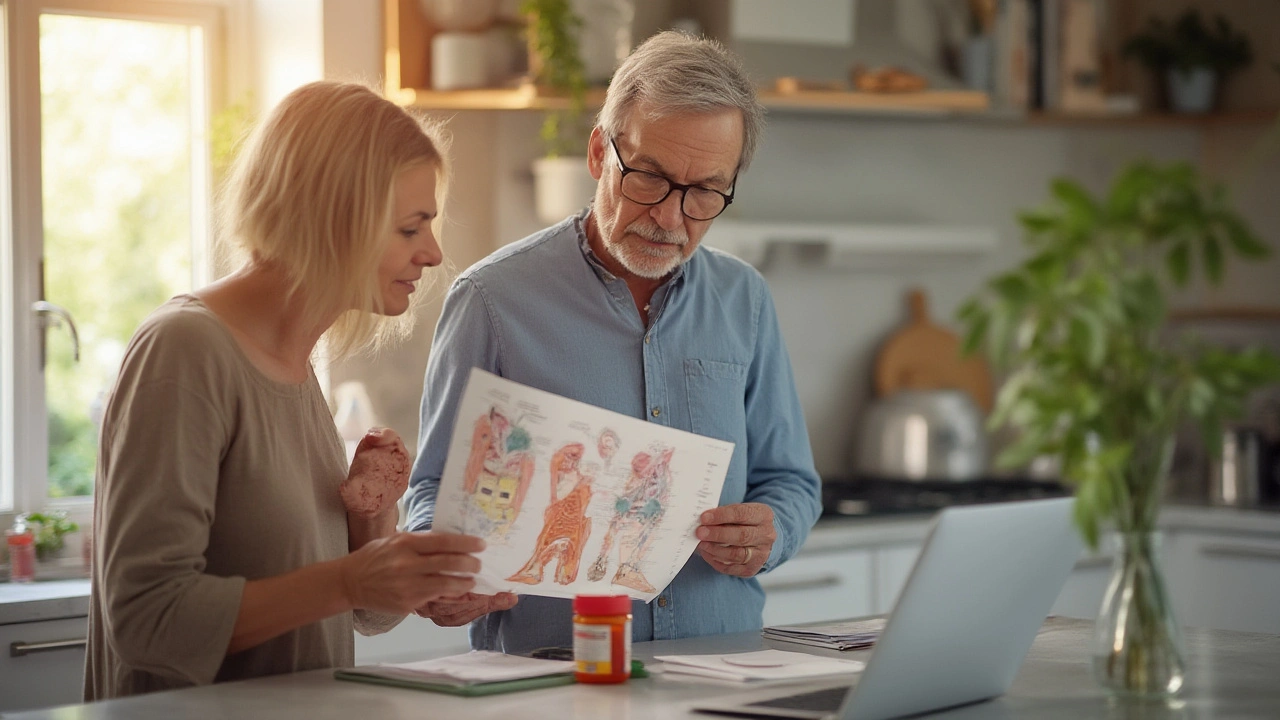Bone Health Guide: Simple Ways to Keep Your Skeleton Strong
Ever wonder why some people seem to have unbreakable bones while others snap easy? The answer isn’t magic – it’s a mix of nutrition, movement, and a few daily habits. Below you’ll find straight‑forward advice you can start using today to protect your bones and stay active longer.
Eat the Right Stuff
Calcium is the building block of bone. Dairy products like milk, cheese, and yogurt are classic sources, but you don’t have to be a cheese‑lover. Dark leafy greens (kale, bok choy), fortified plant milks, and calcium‑rich beans all count. Aim for about 1,000 mg of calcium a day if you’re under 50, and a bit more after that.
Vitamin D works hand‑in‑hand with calcium, helping your gut absorb it. Sunlight is the cheapest vitamin D source – 10‑15 minutes of midday sun a few times a week does the trick for many. If you live far from the sun or have darker skin, a supplement of 800‑1,000 IU daily is a safe bet. Look for D3 (cholecalciferol) because it raises blood levels faster than D2.
One of our popular posts, “Calcium Carbonate: Benefits, Uses, and Essential Facts for Health,” breaks down how calcium carbonate tablets compare to calcium citrate and why taking them with food matters. If you’re already on a calcium supplement, double‑check the type to avoid stomach upset.
Move Your Body
Weight‑bearing exercise is bone’s best friend. Walking, jogging, dancing, or even gardening puts gentle stress on your skeleton, signaling it to stay dense. Resistance training with dumbbells or resistance bands adds extra load, especially for the hips and spine where fractures are most dangerous.
Try to fit in at least 30 minutes of moderate activity most days. If you’re new to exercise, start with short walks and gradually increase the pace. Consistency beats intensity for bone health.
Our guide “Calcitriol and Nerve Health” also highlights a hidden link: vitamin D isn’t just for bones – it protects nerves too. Keeping both systems healthy can reduce fall risk, another key to preventing fractures.
Beyond food and movement, avoid habits that weaken bone. Smoking and excessive alcohol cut down bone formation and raise fracture chances. Cut the soda habit; high phosphates can leach calcium from bone.
Want a quick check on your bone health? Ask your doctor for a DEXA scan. It measures bone mineral density and can spot early osteoporosis before a break happens. Early detection lets you act faster with diet tweaks, supplements, or medication if needed.
In short, strong bones come from a combo of calcium, vitamin D, regular weight‑bearing activity, and avoiding bone‑harmful habits. Stick to these basics and you’ll give your skeleton the best chance to stay solid for years to come.
Midodrine and Osteoporosis: Exploring Risks, Effects, and Prevention Tips
Discover how midodrine influences osteoporosis risk, impacts bone health, and what you can do to keep your bones strong if you use this medication.
